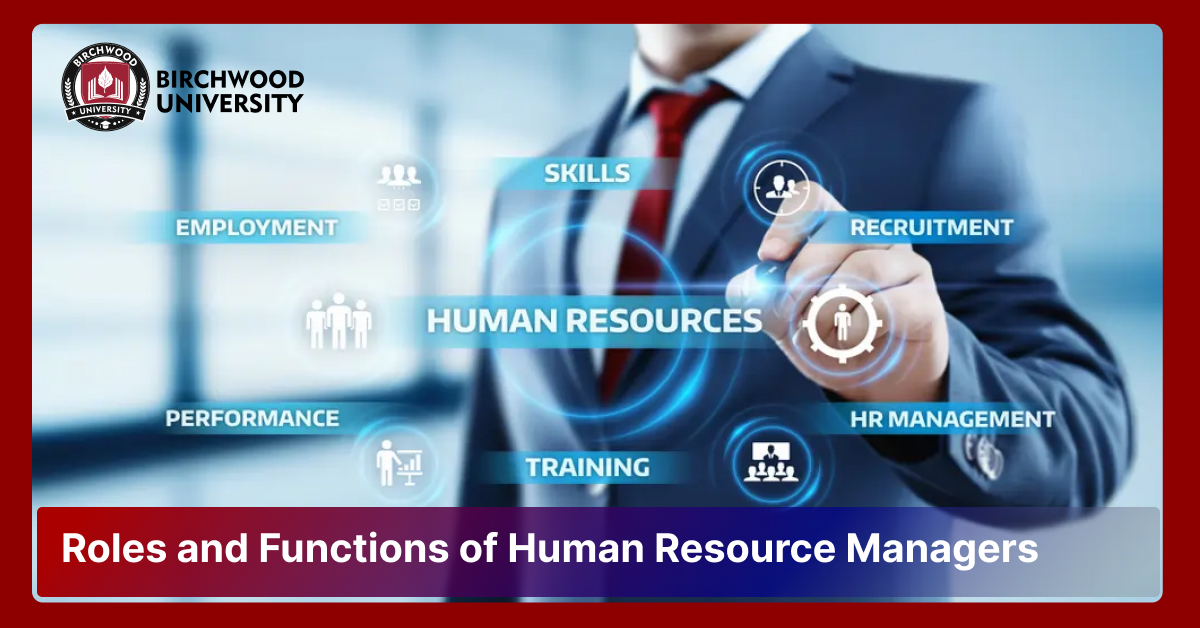How a Doctorate in Business Administration Equips You for Modern Business Challenges
Feb 9, 2026Businesses worldwide face challenges that become increasingly complex each year. New technologies, economic shifts, and global competition compel companies to make more informed decisions.
What worked five years ago doesn't guarantee success today. Professionals now require a deeper understanding of how to lead organizations through constant change.
A Doctorate in Business Administration (DBA) develops that kind of advanced leadership. Research from the Bureau of Labor Statistics shows steady growth in executive and senior management roles across the United States. Employers look for leaders who can think critically, make decisions grounded in research, and guide companies through change. Professionals with a Doctorate in Business Administration (DBA) bring that mix of skills that modern organizations value most.
The 21st-Century Business Challenges You'll Face
Technology, globalization, and evolving consumer expectations are creating challenges that didn't exist a decade ago. For students who are thinking of upgrading their career, understanding these challenges is the first step toward becoming a capable, future-ready leader.
1. Keeping Up with Rapid Change
AI, automation, and digital transformation are changing how companies operate. Processes that once took hours are now automated, and decision on them increasingly relies on instant data. Leaders must adapt quickly and guide their teams through constant change.
2. Managing Remote and Hybrid Teams
More companies are working with remote or hybrid teams, which has created new challenges in communication, collaboration, and team management. Keeping everyone connected, productive, and motivated across different locations can be a bit tricky. Leaders need strategies to maintain productivity, build company culture, and support employees.
3. Competing in a Global Marketplace
U.S. businesses now face competition from companies all over the world. They face global rivals in every sector. Market shifts, supply chain issues, and economic ups and downs mean leaders must be prepared to adapt quickly and make decisions with both speed and accuracy.
4. Meeting Consumer Expectations
Today's consumers care about ethics, sustainability, and social responsibility. Businesses must show responsibility while delivering results. Leaders must balance profit with values, making decisions that build trust and long-term success.
5. Data Overload and Evidence-Based Decision Making
Organizations collect enormous amounts of data, but numbers alone don't make decisions. Leaders must be able to analyze information, spot patterns, and take action based on solid evidence rather than guesswork.
How a Doctorate in Business Administration Responds to Modern Challenges
Businesses today face problems that can't be solved by guesswork or routine decisions. Leaders need to think clearly, act strategically, and base choices on solid research. That's what a Doctorate in Business Administration (DBA) teaches.
Unlike an MBA, which focuses on running teams and operations, a DBA focuses on asking the required questions. The business landscape is constantly shifting, technology evolves, consumer habits change, and global events create new challenges overnight. That is why, DBA programs in the U.S are built for professionals who want more than day-to-day management skills. Students learn how to improve systems, make ethical decisions, and lead creativity even in an uncertain market.
Dealing Business Challenges with DBA Research
A Doctorate in Business Administration (DBA) goes beyond textbooks. U.S companies face challenges every day, like keeping employees engaged in remote work or adjusting to fast-changing market trends. DBA students learn how to tackle these issues with practical strategies backed by evidence.
Let's see how this works in practice:
Hybrid Work Model & Employee Retention
A Stanford University study led by Professor Nicholas Bloom found that employees who worked remotely two days a week were just as productive as their in-office peers, and their turnover dropped by 33%. DBA students use research like this to analyze workforce models, create data-backed engagement strategies, and help organizations build hybrid systems that actually work.
Building Sustainable Business Models
The research published by Clarity AI offers a case of a mid-sized U.S.S energy company embedding sustainability into operations and achieving measurable results: reductions in greenhouse-gas emissions, stronger stakeholder trust, and business value. This addresses ethical and sustainable business practices, which is itself a major challenge for modern companies. A DBA teaches how to tie sustainability goals to business strategy and measure impact. That way, they can link corporate responsibility directly to profitability and long-term growth.
Workforce Learning & Reskilling in a Large U.S Company
A major U.S energy provider used an online learning platform (via Udemy Business) to upskill employees. Results included cost-saving of over $4 million, a 50% increase in course engagement, and over 60,000 course hours logged. DBA graduates are equipped to measure such outcomes, proving the impact of learning investments on productivity and retention.
That's how DBA research helps students think like executives. They learn to spot trends, analyze data, and make decisions that bring some measurable results. The best part? Students can apply what they learn directly to their careers. Every insight, every strategy, every recommendation strengthens their leadership skills and prepares them for higher-level roles. All this makes DBA graduates highly valuable.
Why Traditional Business Education Isn't Enough
Many students assume that a bachelor's or master's degree is all they need to succeed in business. But today's challenges go beyond running a team or managing operations daily. The truth is, traditional business education majorly focuses on routine management skills and doesn't always prepare students for the complex problems modern companies face. That's where traditional education sometimes falls short.
1. Limited Training in Strategic Thinking
Many programs teach how to manage daily operations or coordinate teams, but they rarely go deeper into how market shifts or how to prepare for the unexpected. Future leaders need to look ahead, read trends, and design strategies that keep companies steady when conditions change.
2. Lack of Problem-Solving Skills
Classroom lessons and case studies help build understanding, but they don't match the uncertainty of real business life. A sudden supply chain issue, a dip in employee morale, or a new policy can test even experienced managers. Students need experience that connects learning to actual business challenges, not just theory.
3. Limited Focus on Ethics and Sustainability
Modern consumers and employees want companies to care about people and the planet, not just solely about profit. Traditional business degrees touch on these topics but rarely prepare students to make ethical choices that balance both responsibility and results. Future leaders must learn how to make decisions that build trust and long-term value.
4. Gaps in Research and Analytical Thinking
Good business decisions depend on facts, not assumptions. Many management programs emphasize models and frameworks from the past instead of training students to test ideas, analyze outcomes, and apply findings to real situations. In today's environment, knowing how to research and use evidence sets successful leaders apart.
Who Should Pursue a Doctorate in Business Administration (DBA)?
If you're new to the idea of DBA, you may be wondering if it's the right path for you. In simple terms, a DBA program can be a perfect option for you if you want to grow beyond standard management skills and make a measurable impact in business.
1. Early-to Mid-Career Professionals
Even with a few years of work experience, a DBA can help you develop advanced leadership, strategy, and research skills. It prepares you to tackle complex business challenges that go beyond day-to-day operations.
2. Aspiring Executives and Business Leaders
Students aiming for positions like Director, Vice President, Chief Operations Officer, Chief Strategy Officer, or other C-suite roles benefit from a DBA. The programs equip you to lead teams, make strategic decisions, and drive organizational success.
Read Also: How a DBA Elevates Your Career as a Business Leader
3. Entrepreneurs and Startup Founders
If your goal is to start or grow a business, a DBA gives you tools to analyze markets, create sustainable strategies, and implement solutions with measurable impact.
4. Consultants and Advisors
Those interested in consulting or advisory roles learn to provide evidence-based recommendations, guide strategic initiatives, and influence organizational decisions confidently.
5. Educators and Trainers in Business
A DBA also suits students who want to teach or train others in business schools, corporate programs, or professional development. You gain research, analytical, and leadership skills that make your teaching practical and credible.
6. Professional Seeking Career Advancement
If you're starting to step into leadership, a DBA can help you stand out. It shows employers that you can think critically, solve complex problems, and make decisions based on solid research. These skills give you an edge when aiming for management positions, consulting opportunities, or even executive roles. Essentially, a DBA helps you move confidently toward the next level in your career.
Read Also: Top 5 Career Paths for DBA Graduates
Conclusion: Why a DBA Matters Today
Business challenges today demand sharp thinking and practical leadership. A Doctorate in Business Administration (DBA) helps professionals handle these challenges with confidence. It gives you the mindset and tools to handle the modern marketplace and grow your career with purpose and impact. It teaches how to make decisions based on facts, not assumptions, and how to design solutions that work in changing conditions.
Employers across the U.S look for leaders who can manage change, guide teams, and think strategically. A DBA builds those skills. It goes beyond theory and helps students apply what they learn to business problems.






